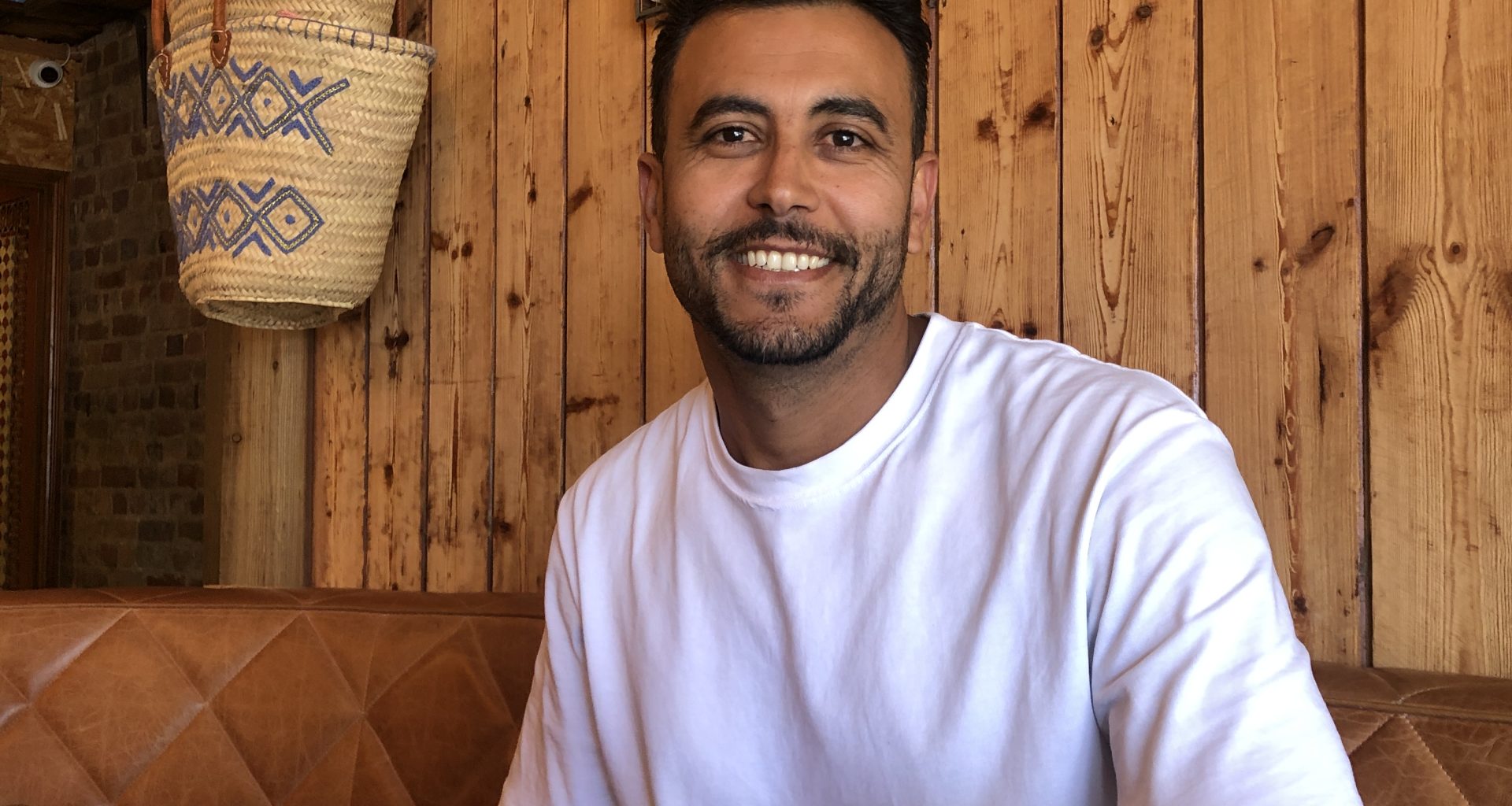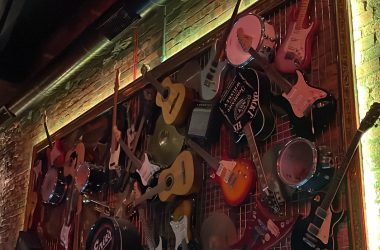According to TripAdvisor, there are only 2 Moroccan restaurants in Dorset. Both are in Bournemouth and offer a mixture of Mediterranean, Middle eastern and Moroccan cuisine. But why is one of the top 10 travel destinations for food lovers in the world hardly present in the culinary scenery of Bournemouth?
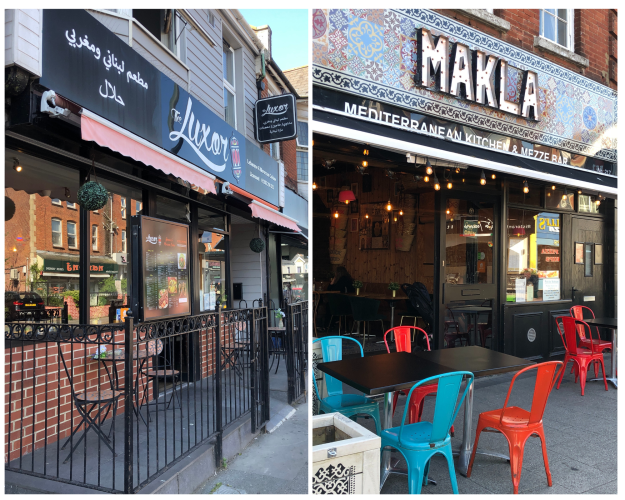
Photos: Nissrine Ouazrouti
Racheal started her food blog after moving to Dorset. She tried many specialities here, and Moroccan food was also on her list, “I have tried it and thoroughly enjoyed it,” she said. James Timms shared that he lived most of his life in Bournemouth, he and his wife usually go for international food when eating out. “People got bored of fish and chips and burgers and wanted to try different things”. He added that he tried Moroccan food before but would love to have a pure Moroccan restaurant in his hometown. The city presents a good environment for new culinary experiences for James and his peers. However, there are several challenges for those wanting to introduce the flavours of Morocco to the city.
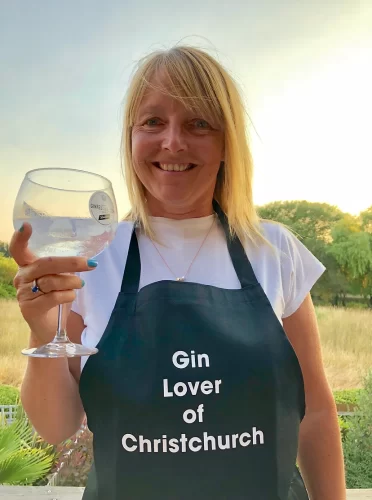
“Bournemouth has a small Moroccan population. I would say 95% of our customers are British, with a very small percentage of customers from Morocco or North Africa. And it’s really hard for those who never travelled to Morocco or tried Moroccan food to adventure to a new cuisine.” Said Karim Beraou, owner of MAKLA restaurant, one of the two Moroccan restaurants in Bournemouth. The restaurant opened in 2018 and was an opportunity for Karim to create a place like home, while presenting the traditions of his homeland. They serve a wide range of Moroccan dishes and drinks such as Tagines, Couscous and Moroccan tea. As well as Middle eastern and Mediterranean specialties like Falafels and Mezzes.
For the minority of North Africans/Moroccans living in Bournemouth and those who have already tried Moroccan cuisine, the food needs to be impeccable. Hammadi Nait Charif is a Moroccan academic living in Bournemouth, “the first time I had Moroccan cuisine outside of Morocco was horrible, I regretted it. It’s a very complicated food and to get it right everything needs to be right.” Karim is aware of the delicateness of the food, he believes the ingredients are one of the biggest challenges. “The cuisine itself is very challenging because the ingredients don’t help here. We do import some ingredients and it takes up to 6 weeks to arrive.”
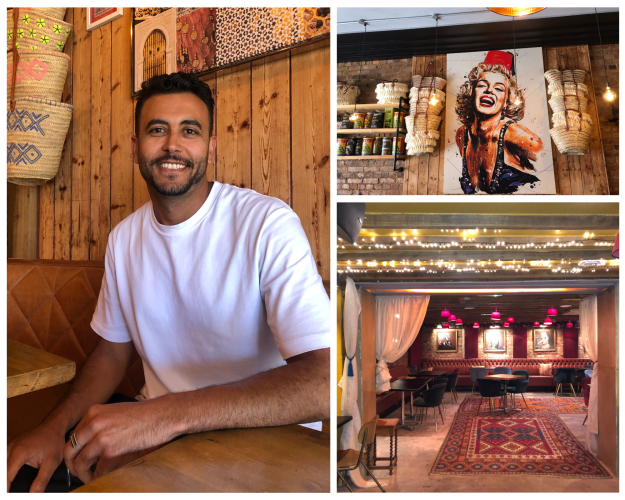
Photos: Nissrine Ouazrouti
The skill requirements also stand in the way of providing Moroccan food. As Karim mentioned, “We need someone who understands the flavours in depth, and we have to go through a long process to sponsor Moroccan chefs. The process can take up to 6 months.”
Most of international specialties offer the food experience purely keeping their food 100% authentic. However, in both restaurants, the Middle eastern and Mediterranean specialties took a considerate section in the menu. When asked why the menu of MAKLA isn’t fully Moroccan, Karim explained that there’s a similarity between Middle eastern and Moroccan food. The closeness of these specific cuisines plays a considerate role in the restaurant’s marketing strategy. “We had to adapt the menu to our 95% customers. Many people have already tried Lebanese and Middle eastern food, so we had to give them something they’re familiar with before introducing Moroccan dishes”.
Ultimately, the presence of Moroccan restaurants in Bournemouth is influenced by various factors. The economic considerations might be a real challenge for entrepreneurs. “It’s hard to find pure restaurants with menus 100% Moroccan because it won’t be economically viable for business owners.” Hammadi added that one Moroccan restaurant tried in the past to keep it authentic but couldn’t meet the market needs of Bournemouth. In point of fact, it is quite difficult and challenging. “To make lunch, moms in Morocco would start from 10am for lunch to be ready at 1pm. If you want to do that for 100 customers every day and combine it with the expensive labour, you can’t sell a properly made Tagine for less than 50 pounds,” said Karim.
From a customer’s point of view, the authenticity of the food makes the experience more enjoyable and pleasurable. Racheal, James and Hammadi all stated that they prefer restaurants to be authentic as much as possible. It will deliver the real experience for the customers. Something that Moroccan restaurants owners like Karim are happy to provide while taking into consideration the survival of their business.
This feature makes use of AI-generated content. In paragraph 7, the 2 first sentences were written with the help of ChatGPT. Multiple prompt were used to generate the text, which was then manually fact checked, verified and edited by the author.





